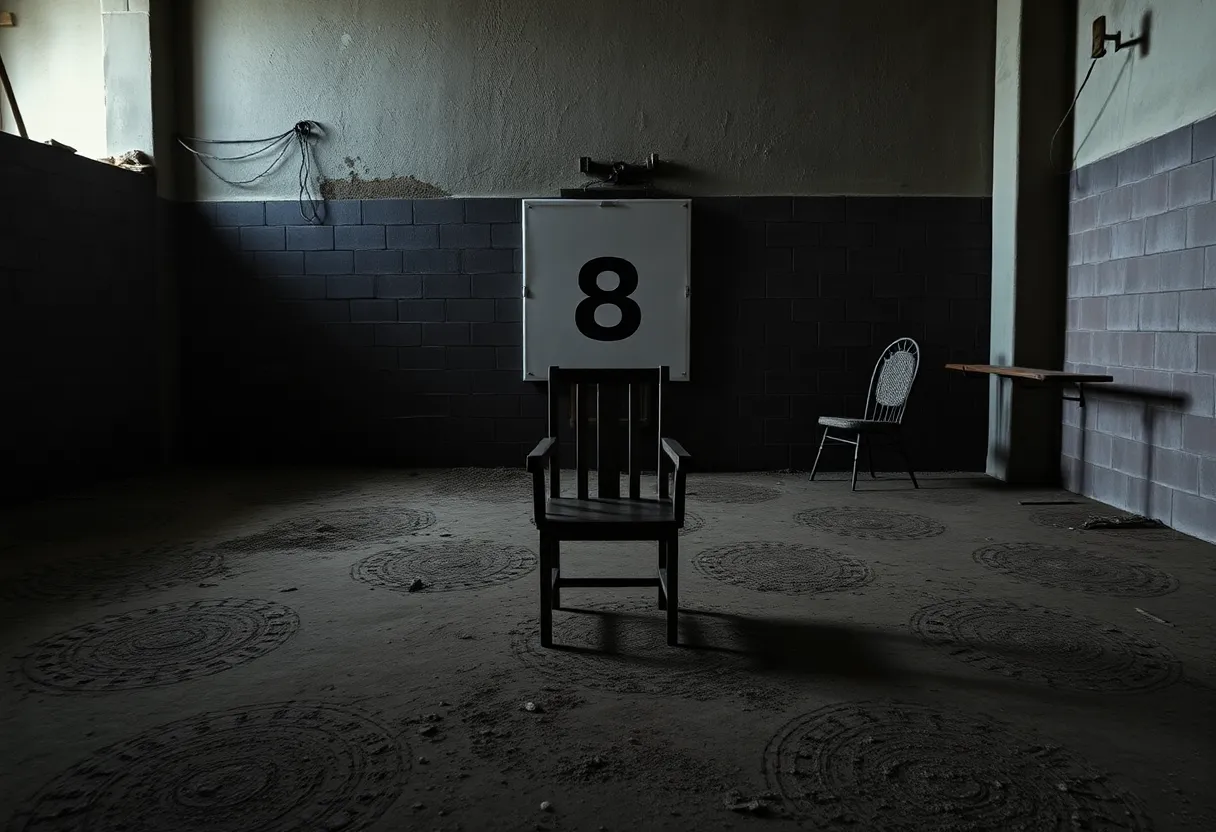

South Carolina Firing Squad Execution Chamber
On March 7, 67-year-old inmate Brad Sigmon will become the first person in South Carolina’s history to be executed by firing squad. This controversial decision has prompted debates about the death penalty, particularly following troubling practices surrounding lethal injection executions. Sigmon’s choice reflects deep concerns about the state’s execution methods and raises questions about the future of capital punishment in the state.
In an unprecedented turn of events, South Carolina is making headlines as it prepares for the execution of 67-year-old inmate Brad Sigmon on March 7. This will be the first time in the state’s history that a firing squad will be used as a method of execution, bringing forth a wave of discussions and mixed feelings among the public.
Sigmon was convicted for a particularly gruesome crime back in 2001. He was found guilty of using a baseball bat to brutally kill his ex-girlfriend’s parents, David and Gladys Larke, in their home located in Greenville County. The details are horrific; he attacked each victim in separate rooms before attempting to kidnap his ex-girlfriend at gunpoint. Fortunately, she managed to escape, even as Sigmon fired shots at her but thankfully missed.
As time ticked away, Sigmon had a critical decision to make regarding his execution method. Facing a looming deadline, he chose the firing squad over the electric chair, which would have been the default method if he had not made a selection by Friday. His choice sheds light on an ongoing debate regarding lethal injection, an execution method marred by troubling reports of prolonged deaths in previous cases.
In South Carolina, recent executions using lethal injections have raised eyebrows. Reports indicate that three inmates faced agonizingly long deaths, reportedly remaining alive for over 20 minutes following their injections. This alarming trend has significantly contributed to Sigmon’s decision to opt for the firing squad. His legal team argues that the state’s lack of transparency concerning the drugs used for lethal injection played a pivotal role in his choice, as crucial details about drug dosages and sources remain undisclosed.
It’s essential to note that the firing squad method was legalized in South Carolina in 2021 due to the persistent difficulties the state faced in acquiring lethal injection drugs. The law established the electric chair as the default execution method, but now, the firing squad stands ready for its debut. Under this method, Sigmon will be secured to a chair, given a hood, and supplied with a target over his heart. Three voluntary members of the execution team will then position themselves 15 feet away, rifles in hand.
If executed, Sigmon will mark a notable moment in history as the oldest person ever executed in South Carolina. More so, he will only be the fourth individual in the United States to face death via firing squad since 1977. His case has led to a slew of legal motions as his lawyers contend that crucial evidence regarding his mental health was inadequately presented during his trial. They argue that his mental health issues and childhood trauma were overlooked, which might have swayed the jury’s decision.
Interestingly, the state has invested $54,000 in renovations for its firing squad execution chamber, signaling preparation for this unusual method. Witnesses of the execution will only see a side profile of Sigmon, thanks to bullet-resistant glass separating them from the death chamber. This arrangement ensures safety while still allowing a view of the proceedings.
Historically, no governor in South Carolina has granted clemency since the death penalty was reinstated in 1976, leaving little hope for Sigmon. As the clock ticks toward his execution date, the community watches with bated breath, grappling with complex questions regarding justice, morality, and the future of capital punishment.
As March 7 nears, South Carolina will undoubtedly be at the forefront of discussions nationwide, making a significant imprint on the ever-evolving conversation surrounding the death penalty.
News Summary Operation Last Stand resulted in the arrest of 80 individuals linked to illicit…
News Summary Keishan Scott, a 24-year-old Democrat, has won a significant special election in South…
News Summary The Jacobs and Jacobs Injury Law Group has opened four new offices in…
News Summary Georgia is set to implement major tort reform laws in April 2025, redefining…
News Summary Governor Kelly Armstrong has appointed Steven Lautt as the new judge for the…
News Summary A congressional hearing led by U.S. Representative Pramila Jayapal exposes alarming accusations of…